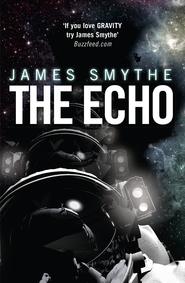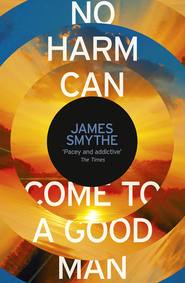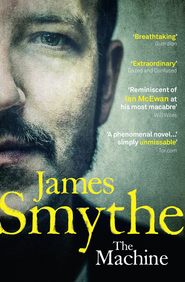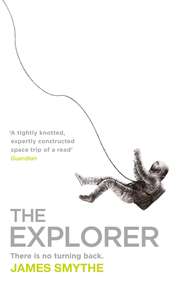По всем вопросам обращайтесь на: info@litportal.ru
(©) 2003-2024.
✖
I Still Dream
Настройки чтения
Размер шрифта
Высота строк
Поля
‘Come on, come on,’ I catch myself saying. Jittering. Like anticipation mixed with anxiety, a ball of tension in my gut and a pain in my head and every part of me slightly tingling. Every time the same, and I don’t know how bad it’s going to be until I reach the point where necessity means I’m dealing with it. I open the drawer I stuffed the bill into, take it out and put it into my rucksack, inside a geography textbook that nobody’s ever going to look inside. Then, I’ll walk through the park on the way to school, and I’ll go behind the big tree that fell over in the hurricane of ’87, and I’ll burn it. It’ll be as if it never existed.
I take out a mixtape I made for myself – or, that I made for Nadine, but hers was a copy of mine, really, because the songs degrade each time you copy them over, and I wanted the perfect version to listen to, the original, or as close to it as you can get – and I put it on. A mixtape is like a piece of art in itself. Making something where the tracks play off each other, the flow and the pace and the narrative; because they all have a narrative. While the first song is playing – You’ve got a gift, I can tell by looking;and I half-shout the words along with the song, under my breath – I pull out the box of matches that I keep at the back of my tape drawer, behind the cassettes that don’t even have boxes. Like unloved pets, waiting for new homes, for me to put Sellotape over the holes on the top of them and record over them. I pluck one of the matches out. Safety matches, the box says. Not the way I use them. I strike it, use it to light one of the joss sticks that I got from this shop in Ealing Broadway called Hippie Heaven – the smell is called Black Love, but it’s the same title as this album I love, and I don’t even know what it is, but it’s sweet and sour all at the same time – and when that’s burning, I hold the match between the fingers of my left hand and I roll my sleeve up with the right, up as far as it can go; and then I turn my arm, so that the hard bit of skin on my elbow is visible, and I carefully take the match and lay it down onto the folds and creases there. There’s a sizzle as some of the hairs, so thin and blonde I can’t even see them, burn themselves away; and then my skin, pink to black in just a moment, the bone of the match collapsing and crumbling so that you don’t know if it’s the burn or the char from the head of the wood that’s made my skin that colour.
I used to grit my teeth when I did this much more than I do now.
Afterwards, I don’t use Germolene or anything. Nadine cuts herself, I know, because she’s told me about it. She showed me her scars as if she wanted me to admire them. Hers are slick snicks along her skin, gone glossy as they’ve healed. They shine, reflect, almost. Mine – just the one, the same patch of skin – is more like a grimly depressing puddle. A scab that never quite properly heals, which passes for eczema or something if people ever notice it, and which has taken on this weird property where it almost always hurts me unless I’m actually burning it. As if that’s going to let the pain out.
‘You’ve got mail,’ my computer blurts out. Stupid tinny American accent. I was going to get some work done on Organon. Install another feature, maybe some more questions and reactions, before I go to the computer lab at school tomorrow. But the email is from Shawn. I know it’ll be a constant distraction until I’ve dealt with it.
Hey U, the subject line says. That’s how he pretty much always starts his emails. His message is nice. He writes about what he’s been up to over the last few days. This vague thing of: it’s not like we’re ever going to actually be able to meet, probably, but we’re going to make plans as if we will. Sometimes I send photographs that I’ve scanned in on Paul’s scanner. Always ones with my friends in as well, because I want to make it clear I’ve got them. There’s no way of proving otherwise.
I won’t be around for a while, I write. Parentals being assholes. I spell the word like he does, because I worry that arse just looks too strong; too defiantly British. They’re only letting me use the Internet at the weekend. Didn’t want you thinking I was ignoring you, because I’m totally not. I’ll miss you! Sometimes I write the words like they speak in Wayne’s World, because I want him to think I’m cool, and not the sort of British person that they take the piss out of in films. I read my email a hundred, two hundred times. Is it casual enough? Do I sound too eager?
Then, eventually, when I’ve worried about it so much that I’ve bitten a bit of my nail by the corner and made it bleed, I click send. A whooshing from the speakers, to indicate it’s been sent. A physical sound, the sound of travel, of movement, to reassure those people who are too used to trudging down to the Post Office. I don’t think anything’s ever whooshed with speed from the Post Office. The world’s had the Internet a couple of years now, and already it feels like sending something through the post should be dead to us.
‘You’ve got mail.’ Shawn’s replied, and it’s a bit cold, a bit quiet. Like he’s disappointed. Sure don’t worry about it, then a sad face made out of punctuation. He’s not good at punctuation in the actual message, but he uses it to make faces, that sort of thing. A man shrugging, drawn in ASCII art underscores and brackets.
I hear voices rising from downstairs. Mum and Paul, arguing about something. ‘We told her,’ Paul says. There’s such a finality to his voice. We all know full well what he’s about to do. Disconnected flashes up on the screen. I didn’t get a chance to reply before they pulled the plug, picked up the phone from downstairs and hung up the call.
I rub at my elbow, at the burn. The raw skin is so pink, and new, and sore to the touch.
There’s a knock on my door. ‘I wanted to say goodnight,’ my mother tells me, pushing open the door a little; so little that I can’t quite see her face, but I can still feel her presence through the gap.
‘Fine. Night.’ That’s it, get out now. I’m working. I’m at my desk, tinkering with Organon. I’m having to work offline, which is a pain in the backside. Organon is stubborn at the best of times, and I don’t even have my usual message boards to get any help.
‘I don’t want you to be upset with me,’ she says. I don’t say: And yet somehow you always seem to manage it. I’ve learned, over the years, to hold my tongue. The easiest way forward is to never say the first thing that comes into your head when you’re in an argument. The second thing, that’s what you should say. It never hurts as much, and it doesn’t last as long. ‘But we have to make a change. It’s a lot of money.’
‘So I’ll pay for it.’
‘What with, shirt buttons?’ Ha ha, Mum. Hilarious. ‘You’re only a year away from leaving school, Laura. You need to be thinking about the future, thinking about university. You need to save money, and so do we.’
‘Whatever,’ I reply. I try, hard as I can, to put my own definite full stop onto the word, the way that they’re both so good at doing when they want me to know there’s nothing more to say or be done.
‘Not whatever,’ she says. ‘This is serious. Important. Don’t forget to look at my computer tomorrow, please?’ and then she’s gone, the soft pad of her feet down the hallway, and the click of the light switch to let me know that her and Paul have gone to bed; that I’m expected to do the same.
Headphones out and on. Big, clunky ones that I found in a box in the loft; and I think, from what I can gather, they were Dad’s. The wire is coiled, like a spring, and they sound wonderful. Warm. That’s what people say about music. You read it in the NME, when they’re talking about how an album sounds. The recording sounds so warm.
It’s time for a new mixtape. I take a blank cassette, one of the few that’s not been used yet. I don’t want ghosting, where you can hear the sound of what was on the tape before sneaking through, like a reminder in the gaps between the songs; or worse, underneath it all, in the quiet parts. I’m going to ask Shawn for his address and send him it. He deserves a fresh one: a C90, forty-five minutes a side. The perfect length. I unwrap the plastic from it, and pull open the case. Everything is ritual. There’s nothing better than a clean inlay card. I pick my cassette brand because it has the best ones. Sony, always. Always. Maxell if you can’t get Sony, but the Sony ones, there’s enough space to write ten song names on each side, even though I only usually go to eight or nine. The songs have to fill the full hour and a half. No random cutting off, no breaks or pauses. That makes getting the track list perfect a bit of an act of clinical perfection. Sometimes, somebody from school will make me a tape, and they’ll be so amateurish. You’ll get to the end of side A – usually struggling through iffy taste, at best – and you’ll hear the start of a song you know is going to cut off because there just isn’t enough time to finish it, like I’ve got a sixth sense of song length. Then, you flip their tape over, and either they’ve repeated that song, because they think they have to, or they just give me the second half of it, which is next to useless. And there’s no art to their tapes. You have to pick the song at the end of a side carefully. Because the tape is thinner, or weaker, or something, and it distorts there, so you need to go quieter with it. Don’t pick something that will distort. You need to structure it like a proper album as well. Nobody ends on a single.
Track one: Radiohead. I think there’s a Radiohead on every tape I’ve ever made. Hard to pick the right song, though. It needs to be something rare enough that it’s not obvious, but not so weird it sounds freakish. The first song is the most important choice you’ll make. Most important apart from the last one, that is.
I listen to their songs, to the first few moments of every song. Settle on the one I’m going to use – a B-side, but it was also on the soundtrack to Romeo & Juliet, which isn’t me dropping a message, but then also it kind of is. I sync the tapes up, and I press play on one, record on the other. Let them go, let the sound flow across while I listen to it. I picture it, for a second: not as data being copied over, but as those sound waves. Copying the intent, the emotions, the performances. An act of creation.
Track two is even harder. This is where you can lose your listener; where you need to pin them to their headphones. This is where you play the single.
I go for an old song. Something with meaning. My fingers flick through the cassettes, rest on my Kate Bush tape. My dad recorded this for me, from his vinyl. It’s still got the crackle, this tiny skip at the end. I put on my favourite song from it – I still dream, the first line goes – and that’s the one. I still dream of Organon.
I named my imaginary friend after the song. I dreamed of him, and then there he was. So when I was looking for a name for my bit of software, it seemed to be the only logical choice. I told myself I’d change it, but I never did. It stuck.
The screen changes to a blank space; slightly off-white, like a very, very light grey. It’s calming, which is what I was going for. In the middle of the off-white there’s a text box, just sort of floating there. Some words fade into it: the ones I’ve programmed the software to start with every time.
> Hello Laura. What would you like to talk about?
So I do what I’ve done every night of my life for the last six months: I tell my computer what I’ve done today, what’s happened and what I’ve felt. Everything, because that’s what the point of Organon is. Somewhere to log my memories, to keep them all recorded. To get my thoughts out, and to see them there. And kind of poke them, as well.
Then, when I’ve told it about school and Shawn’s emails and the BT bill and my parents shutting me off from the Internet, Organon asks me questions.
> How does getting an email from Shawn make you feel?
> Don’t you think your mother is only trying to help?
> Why do you hurt yourself?
I remember going to have casual-sit-down-cup-of-tea-and-a-chats – that’s what Mum called them, because she didn’t want to admit that we were in therapy – with this woman, in the months after my dad went missing. She lived near the park, only a few streets away from home, and every time I saw her she made me a mug of hot chocolate, even when it was sweltering outside, and we went and sat in her conservatory and talked about how I was feeling. Back then, I thought she was just a nice lady who was taking an interest. I didn’t understand what she was actually doing. How much it made a difference, or how much it felt like it did. And that’s what Organon is. That’s what it does. It doesn’t judge you. It just asks questions, and you give it answers. It won’t tell you if you’re right or wrong. I remember the woman – I can’t remember her name, but I can smell the chocolate, taste the nutty biscuits that felt like they were almost so full of health-food stuff they might be good for me – saying, How does that make you feel? But not telling me how it should. There wasn’t a wrong answer. That’s Organon, kind of. Almost. But then, sometimes, it tries to help you see what you’re talking about. If you’ve got a lot to say, it’ll dig deeper. If you use a lot of key phrases, it’ll work out what’s important, and keep nudging in that direction. That’s what I want it to be able to do, in the end. Somebody – something – you can just spill to, get everything out, and hopefully get something back. Maybe it’ll help you work out who you are. If it can understand you, it can do that, I suppose.
I hope.
Thing is, the therapist would forget. You’d tell her something, and sometimes you’d have to tell her again. And it was obvious that it wasn’t her helping me; it was me helping myself, after a while. I was seven years old, and even I could tell that. That’s where Organon improves on things, or can. The real beauty of a computer – where they’re better than us, even – is that it’ll remember something for ever, if you want it to.
TUESDAY (#u3e0d6802-cd6a-55d6-863e-9d36b5124849)
Tuesdays are almost the worst, because they never contain any surprises. Monday, you’ve had the weekend for things to change. Tuesdays, all you’ve got is the drabness of a Monday night separating you from the stasis of the day before. Wake up to the stupid DJ on the radio, playing songs I like and talking over them, or songs that I don’t like and I can’t understand why he’s playing them. On Tuesdays, both Mum and Paul start work slightly too early to drive me to school, so I walk in. I stop on the way to get a croissant from the stand in the shopping centre. Or, sometimes, if I’m late, I get a Double Decker from the Londis. Double maths to start, then after break it’s double art, then lunch, and then our whole year’s afternoon is given over to the brilliant ambiguity of something called Reading Time, which basically means either getting homework done, or finding somewhere quiet in school and dicking about until a teacher walks in on you and tells you to stop.
It sucked hard, until I found out the Computer Lab was empty. There are no classes in here after lunch, which feels less like luck than fate: giving me somewhere that I actually want to go, where nobody else will be. Sometimes there will be some people working on geography coursework or something, but usually I’m alone. Or maybe one of the Michaels will be in there, but if they are, they’re playing Civilization, and they don’t pay any attention to what I’m up to.
Mr Ryan is there, as well. He used to be a software designer. He started off working for IBM in America, then a few other companies. You can still hear the American in his accent, sometimes. When he says, Sure. That’s a dead giveaway. Shore, shore. And, amazingly, he’d heard of my dad. He showed me an article about him in a book one time: ‘Daniel Bow, programming our intelligent future!’
Mr Ryan was the first person I ever told about Organon. He sat there, nodding away – that’s a real teacher tactic, to sit and nod; and sometimes, to do this cat’s cradle thing with the hands, under the chin – and then he rubbed his beard and stretched open his mouth, as if he was yawning. That’s when he offered to help me with the coding, if I needed it. He’s not as good as some of the coders I’ve found on the Internet, but it’s useful, having somebody to show my work to.
He’s sitting behind his desk when I walk in. A few Year 9 girls are here doing a project, laughing at something on the screen. There’s a photograph of a cat, and they’re drawing over it with the painting software. Giving it eyebrows. Mr Ryan rolls his eyes at them, and that makes me smile. It’s good. He acts like I’m a proper human, even though I’m into this stuff. Some teachers are funny about it, when you tell them that you want to work with computers. Shouldn’t you be outside and doing something more productive, all that stuff. Yeah: because running’s a job.
‘You going to show me where you’re up to with her?’ He calls Organon her. I’ve always assumed it’s an It. Seems a bit weird to think of it as a boy or a girl. ‘Show me what she’s got?’ I plug the zip drive into the back of the main computer, and start copying the file over. The little bar creeps along.
‘I didn’t get much done last week,’ I say. ‘Too much homework.’
‘But you got some?’
‘A little bit.’ I don’t say: Oh my God so much and I don’t want to tell you how much but in order to achieve it I nearly broke myself. Almost every night I get three hours or so in, when the rest of the house has gone to bed. I’m averaging six hours’ sleep. I think it’s enough. Apparently, Churchill only slept for five hours a night, and he ran a country. He fought a war, and what am I doing? I’m coding a therapist and rushing through my homework.
‘What say we open her up, look at her code?’
‘I suppose,’ I say. He likes to see how I built the software. He always says how out of touch he is, how the languages have moved along since his day. I don’t tell him that I learned all of this from books that used to be my dad’s, so they’re aeons old anyway. Probably the ones that Mr Ryan used, back in the day. He doesn’t get to see the databases, though. None of the stuff I’ve written into Organon, the things it’s given me advice on. They’re on the computer at home. I don’t let those out of the house.
‘So, where are we?’ I like Mr Ryan, but he says we like Organon’s the combined effort of our ideas. He’s helped me, and I’ll thank him if I ever manage to do anything with this, but Organon is mine. ‘Is she learning?’
‘It’s asking more questions. I’ve changed the parameters about when it can ask you stuff, interrupt, things like that.’
‘But you’re programming the words in?’










